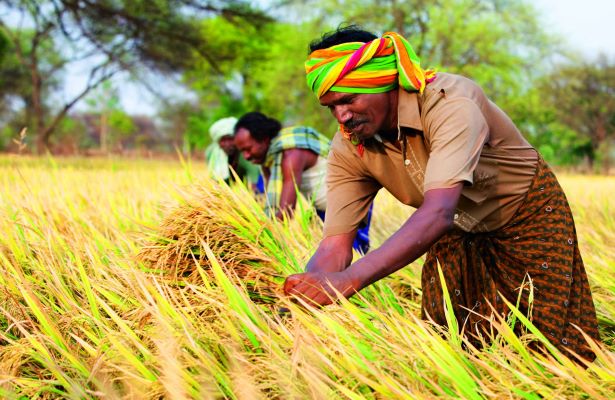The Bayer Rice Carbon Program has been implemented across 11 states in India

Direct seeded rice has led to fewer emissions, and benefited thousands of rice farmers in India.
Bayer is announcing its first tranche of carbon credits from thousands of rice farmers implementing regenerative practices like direct seeded rice (DSR) farming in India. Credits of up to 250,000 tonnes of carbon dioxide equivalent (CO2e) are being validated, certified and issued by Gold Standard, one of the leading standards and registries in the voluntary carbon market.
These credits will be available for climate-conscious companies to purchase in support of greenhouse gas (GHG) emission reductions, water savings, and regenerative agriculture in smallholder farming at scale.
The Bayer Rice Carbon Program has been implemented across 11 states in India, with thousands of farmers adopting regenerative agriculture practices over the past two years. Along with alternate wetting and drying techniques, DSR is one of the emerging practices generating the new carbon credits. This marks the first time Bayer will issue carbon credits as a result of regenerative crop production in Asia.
“The Bayer Rice Carbon Program is generating hundreds of thousands of high-quality carbon credits, and with this large-scale pilot feeding into larger scale projects across the region, there are many more in the pipeline,” said George Mazzella, VP of Ecosystem Services Business Development at Bayer's Crop Science division. In addition to reduced labor and water usage, and potentially lower cultivation costs leading to increased profitability, farmers participating in the Bayer Rice Carbon Program have access to crop advisory services throughout the season.
“Our teams on the ground are working with farmers as they transition to new practices,” added Mazzella. “This hands-on support helps ensure their long-term success and prosperity, and it's also what sets this program apart.”
The Bayer Rice Carbon Program generates carbon credits by helping farmers transition from transplanted puddled rice cultivation, significantly reducing methane emissions caused by decomposing organic matter in flooded rice fields. According to the European Commission, methane is 28 times as potent as carbon dioxide at trapping heat over a 100-year period and 84 times more potent on a 20-year timescale.
“Direct seeded rice is an important regenerative practice that reduces emissions of a potent greenhouse gas, and we are excited to see the first carbon credits coming out of it,” said Frank Terhorst, Head of Strategy and Sustainability at Bayer’s Crop Science division. “For us, regenerative agriculture is all about on-farm outcomes, driven by production systems that not only create value for farmers, but make farming more resilient, and also benefit the environment. In the long run, such systems enable farmers to produce more food without starving the planet.”
Subscribe to our newsletter & stay updated.